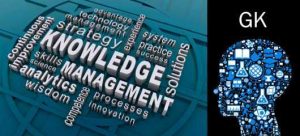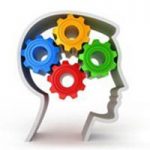Easy GK Quiz and Answers in English

1) FFC stands for
A. Foreign Finance Corporation
B. Film Finance Corporation
C. Federation of Football Council
D. None of the above
Answer: B
Film Finance Corporation Australia (FFC) was the Australian Government’s principal agency for funding the production of film and television in Australia. Once a wholly owned government company, it was folded into a new agency, Screen Australia in 2008. It was established in 1988, its inaugural chairman being Kim Williams. Since its establishment the FFC has invested in 1,079 projects with a total production value of $2.58 billion.
2) East Timor, which became the 191st member of the UN, is in the continent of
A. Asia
B. Africa
C. Europe
D. South America
Answer: A
Timor-Leste, or East Timor, a Southeast Asian nation occupying half the island of Timor, is ringed by coral reefs teeming with marine life. Landmarks in the capital, Dili, speak to the country’s struggles for independence from Portugal in 1975 and then Indonesia in 2002. The iconic 27m-tall Cristo Rei de Dili statue sits on a hilltop high over the city, with sweeping views of the surrounding bay.
3) Fastest shorthand writer was
A. Dr. G. D. Bist
B. J.R.D. Tata
C. J.M. Tagore
D. Khudada Khan
Answer: A
Shorthand: a method of rapid writing by means of abbreviations and symbols, used especially for taking dictation. The major systems of shorthand currently in use are those devised in 1837 by Sir Isaac Pitman and (in the US) in 1888 by John R. Gregg (1867–1948)
4) Free market is
A. a condition in the international market where nations do not impose customs duty or other taxes on import of goods
B. market where the price of a commodity is determined by free play of the forces of supply and demand
C. ports that are exempted from payment of customs duty on articles of commerce, primarily to encourage tourism
D. None of the above
Answer: B
One view is that a free market is a system in which the prices for goods and services are determined by the open market and consumers, in which the laws and forces of supply and demand are free from any intervention by a government, price-setting monopoly, or other authority. Another view considers systems with significant market power, inequality of bargaining power, or information asymmetry to be less than free.
5) Epsom (England) is the place associated with
A. Horse racing
B. Polo
C. Shooting
D. Snooker
Answer: A
Epsom is a market town in Surrey, England, 13.6 miles south south-west of London, located between Ashtead and Ewell. The town straddles chalk downland and the upper Thanet Formation.
6) Dr. Linus Carl Pauling is the only person to have won two Nobel prizes individually for
A. Chemistry in 1954, Peace Prize in 1962
B. Peace Prize in 1954, Chemistry in 1962
C. Physics in 1954, Medicine in 1962
D. Medicine in 1954, Physics in 1962
Answer: A
Linus Carl Pauling was an American chemist, biochemist, peace activist, author, and educator. He published more than 1,200 papers and books, of which about 850 dealt with scientific topics.
7) First human heart transplant operation conducted by Dr. Christiaan Barnard on Louis Washkansky, was conducted in
A. 1967
B. 1968
C. 1958
D. 1922
Answer: A
Christiaan Neethling Barnard was a South African cardiac surgeon who performed the world’s first human-to-human heart transplant on December 3, 1967, and the second overall heart transplant.
8) During the first crusade, crusaders reached Jerusalem and captured it in
A. 1000 AD
B. 1099 AD
C. 1200 AD
D. 1515 AD
Answer: B
The Crusades were a series of religious wars sanctioned by the Latin Church in the medieval period, especially the campaigns in the Eastern Mediterranean aimed at recovering the Holy Land from Islamic rule.
9) Galileo was an Italian astronomer who
A. developed the telescope
B. discovered four satellites of Jupiter
C. discovered that the movement of pendulum produces a regular time measurement
D. All of the above
Answer: D
Galileo Galilei was an Italian polymath: astronomer, physicist, engineer, philosopher, and mathematician. He played a major role in the scientific revolution of the seventeenth century.
10) Gabriel Daniel Fahrenheit was
A. a German Physicist
B. developed the mercury thermometer in 1714
C. devised temperature scale
D. All of the above
Answer: D
Daniel Gabriel Fahrenheit was a Dutch-German-Polish physicist, inventor, and scientific instrument maker. A pioneer of exact thermometry, he is best known for inventing the mercury-in-glass thermometer and for proposing the Fahrenheit scale.
11) Habeas Corpus Act 1679
A. states that no one was to be imprisoned without a writ or warrant stating the charge against him
B. provided facilities to a prisoner to obtain either speedy trial or release in bail
C. safeguarded the personal liberties of the people against arbitrary imprisonment by the king’s orders
D. All of the above
Answer: D
1679 – The Habeas Corpus Act. The Habeas Corpus Act of 1679, was passed during the reign of the restored monarchy of Charles II after the English Civil War. It strengthened the ancient and powerful writ which had been a feature of English Common Law since before Magna Carta.
12) Himalayan Mountaineering Institute is at
A. Darjeeling
B. Dehradun
C. Marmago
D. Dispur
Answer: A
The Himalayan Mountaineering Institute was established in Darjeeling, India on November 4, 1954 to encourage mountaineering as an organized sport in India.
Easy GK Quiz and Answers Part 2
13) Exposure to sunlight helps a person improve his health because
A. the infrared light kills bacteria in the body
B. resistance power increases
C. the pigment cells in the skin get stimulated and produce a healthy tan
D. the ultraviolet rays convert skin oil into Vitamin D
Answer: D
Human skin can make large amounts of vitamin D when lots of skin is exposed and the sun is high in the sky. Your body is designed to get the vitamin D it needs by producing it when your bare skin is exposed to sunlight. The part of the sun’s rays that is important is ultraviolet B (UVB).
14) For galvanizing iron which of the following metals is used?
A. Aluminium
B. Copper
C. Lead
D. Zinc
Answer: D
Galvanization (or galvanizing as it is most commonly called in that industry) is the process of applying a protective zinc coating to steel or iron, to prevent rusting. The most common method is hot-dip galvanizing, in which parts are submerged in a bath of molten zinc.
15) Golf player Vijay Singh belongs to which country?
A. USA
B. Fiji
C. India
D. UK
Answer: B
Vijay Singh, CF, nicknamed “The Big Fijian”, is a Fijian professional golfer who was Number 1 in the Official World Golf Ranking for 32 weeks in 2004 and 2005.
16) Economic goods are
A. all commodities that are limited in quantity as compared to their demand
B. Commodities that is available according to their demand
C. Commodities that is available more as compared to demand
D. None of the above
Answer: A
An economic good is one which is produced using the factors of production (resources) and which cannot be obtained without foregoing something else which could otherwise have been produced with the resources. In other words, an economic good involves an opportunity cost.
17) Guarantee to an exporter that the importer of his goods will pay immediately for the goods ordered by him, is known as
A. Letter of Credit (L/C)
B. laissezfaire
C. inflation
D. None of the above
Answer: A
A letter of credit is a letter from a bank guaranteeing that a buyer’s payment to a seller will be received on time and for the correct amount. In the event that the buyer is unable to make payment on the purchase, the bank will be required to cover the full or remaining amount of the purchase.
18) For purifying drinking water alum is used
A. for coagulation of mud particles
B. to kill bacteria
C. to remove salts
D. to remove gases
Answer: A
The very fine suspended mud particles and colloidal matter presents in water cannot settle down during the pre-treatment impoundment of water in the sedimentation tanks. These particles can easily be removed by increasing their size by changing them into flocculated particles.
19) First Afghan War took place in
A. 1839
B. 1843
C. 1833
D. 1848
Answer: A
The First Anglo-Afghan War was fought between British imperial India and the Emirate of Afghanistan from 1839 to 1842.
20) Hockey was introduced in the Asian Games in
A. 1958 in Tokyo
B. 1962 in Jakarta
C. 1966 in Bangkok
D. 1970 in Bangkok
Answer: A
The 1958 Asian Games, officially the Third Asian Games and commonly known as Tokyo 1958, … Four of these competition sports – field hockey, table tennis, tennis and volleyball – were introduced for the first time in the Asian Games.
21) Gulf cooperation council was originally formed by
A. Bahrain, Kuwait, Oman, Qatar, Saudi Arabia and United Arab Emirates
B. Second World Nations
C. Third World Nations
D. Fourth World Nations
Answer: A
Image result for Gulf cooperation councilwww.worldbank.org
The Gulf Cooperation Council (GCC) is a regional political organisation comprising the energy rich Gulf monarchies – Bahrain, Kuwait, Oman, Qatar, Saudi Arabia, and the United Arab Emirates.
22) ESCAP stands for
A. Economic and Social Commission for Asia and Pacific
B. European Society Council for Africa and Pacific
C. Economic and Social Commission for Africa and Pacific
D. None of the above
Answer: A
The Economic and Social Commission for Asia and the Pacific (UNESCAP or ESCAP), located in the United Nations Building in Rajadamnern Nok Avenue in Bangkok, Thailand, is one of the five regional commissions of the United Nations Economic and Social Council, under the administrative direction of the United Nations headquarters. It was established in 1947 (then as the UN Economic Commission for Asia and the Far East, ECAFE) to encourage economic cooperation among its member states. The name was changed to the current in 1974. ESCAP has 53 member States and nine Associate members. As well as countries in Asia and the Pacific, it includes France, the Netherlands, the United Kingdom and the United States.
23) First China War was fought between
A. China and Britain
B. China and France
C. China and Egypt
D. China and Greek
Answer: A
The Sino-Indian War, also known as the Sino-Indian Border Conflict, was a war between China and India that occurred in 1962. A disputed Himalayan border was the main pretext for war, but other issues played a role.
24) Firdausi was
A. a poet
B. well known for his epic ‘Shahnama’
C. Both option A and B
D. None of the above
Answer: C
Abu ʾl-Qasim Ferdowsi Tusi, or Ferdowsi was a Persian poet and the author of Shahnameh, which is the world’s longest epic poem created by a single poet, and the national epic of Greater Iran.



